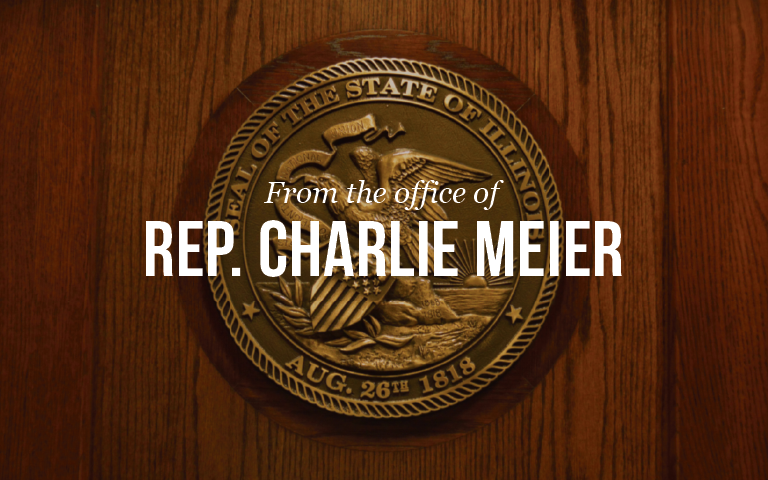State Representative Charlie Meier (R-Okawville) recently voted against the passage of Speaker Madigan’s anti-democratic House rules, the rules enable Madigan to control the destiny of every bill considered in the House of Representatives. As an alternative, Rep. Meier co-sponsored legislation to reform Madigan’s House rules in order to bring more transparency and fairness to the legislative process.
“Every year the legislature files hundreds of bills that potentially could become law, and a bill won’t receive a vote unless Speaker Madigan offers his blessing,” said Rep. Meier. The Speaker of House is a very powerful position, the Speaker controls the destiny of every bill that comes before a vote and I’m seeking to change that.”
Rep. Meier co-sponsored House Resolution 62 which includes five changes to Madigan’s House rules aimed at bringing more transparency and fairness to the lawmaking process in the Illinois House of Representatives. The five changes include:
1. Require Committee Vote for Bipartisan Bills & Resolutions Pending in Committee – Require that when a bill or resolution in committee has at least five co-sponsors from the majority caucus and at least five co-sponsors from the minority caucus, the Committee Chairperson must provide an opportunity to the bill sponsor to present the bill for consideration and a committee vote.
2. Create Waiting Period for Floor Amendments – Create a longer public review period before consideration of floor amendments and concurrence motions by prohibiting consideration until the calendar day after notice is posted for a hearing or the calendar day after the measure is reported directly to the House from the Rules Committee.
3. Create Waiting Period After Committee Testimony – Require that the initial testimony and discussion of bills in committee must occur before a vote of the committee on the reporting motion; and such committee vote may not occur on the same calendar day that testimony was heard.
4. Require House Vote for Bills & Resolutions Supported by Bipartisan Supermajority – Provide that a motion signed by 71 members guarantees a vote of the House on a bill or resolution. At least five members affiliated with the majority party and five members affiliated with the minority party must be included among the 71 or more signatories. Such bills would be discharged from a standing/special/Rules committee, or transferred from the regular calendar, and placed on an order of business that the House must go to each day that it convenes in regular session; and sponsors of bills on the order would have the right to call their bills for a vote whenever the House is on that order.
5. Extend Time for the House to Consider Motions to Discharge Standing/Special Committee – Provide that for six session days after the committee reporting deadline the House may still consider motions to discharge from standing or special committees. Currently, bills remaining in committee on date of the reporting deadline are immediately re-referred to the Rules Committee, which means that the motion to discharge from standing committee, which requires 60 votes for adoption, is no longer an option.
